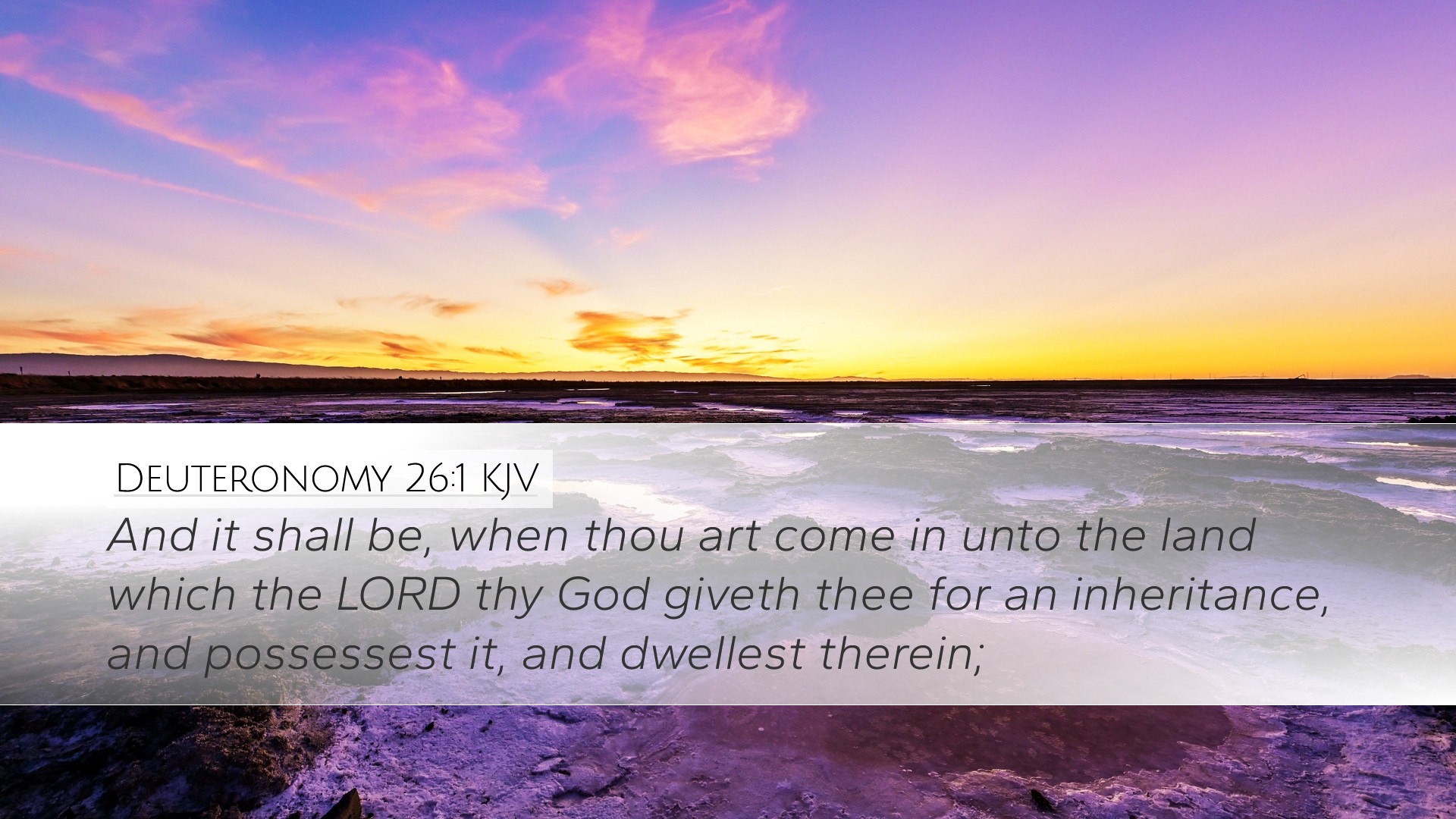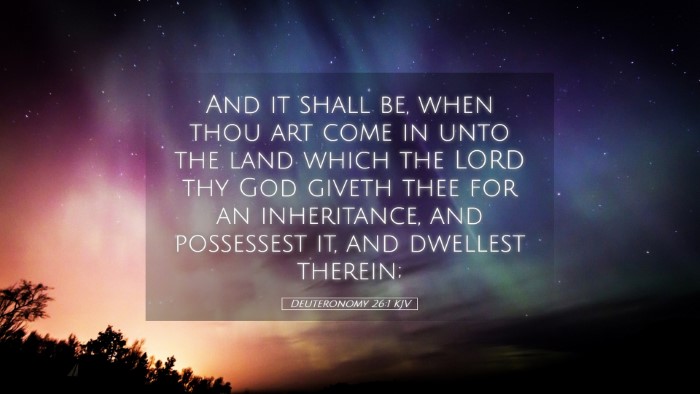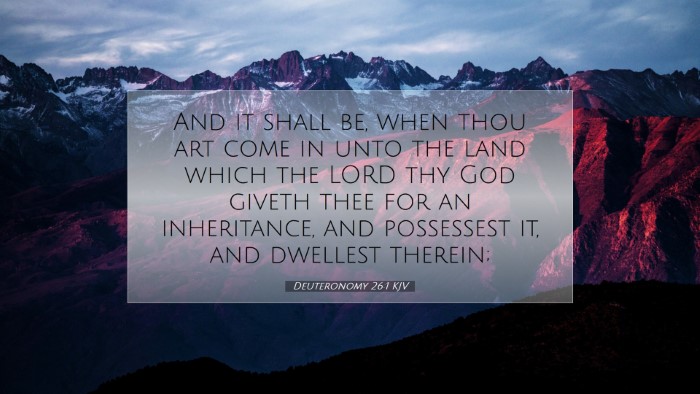Commentary on Deuteronomy 26:1
Deuteronomy 26:1 states:
"And it shall be, when thou art come in unto the land which the Lord thy God giveth thee for an inheritance, and hast possessed it, and dwellest therein."
Introduction
This verse serves as a pivotal point in the transitional narrative of the Israelites as they prepare to enter the Promised Land. The significance of this command from God carries deep theological implications as well as practical applications for the people of Israel and contemporary readers alike.
Contextual Background
Deuteronomy is a series of speeches delivered by Moses to the Israelites as they stand on the cusp of entering Canaan. This chapter outlines the laws and stipulations that the Israelites are to follow in response to God's covenant with them. At this significant juncture, God instructs them on the offerings they are to present upon settling in the land.
Commentary Insights
Matthew Henry
Matthew Henry emphasizes the importance of gratitude in worship. He notes that the instruction to present oneself upon entering the land reflects not just physical possession, but also spiritual recognition of God’s providence.
- Gratitude: This verse highlights the necessity for the Israelite people to acknowledge the Lord’s hand in their lives, a theme prevalent throughout Hebrew scripture.
- Recognition of God’s Gift: Possessing the land is tied intricately to God's promise. The entering of the land symbolizes both fulfillment and responsibility.
Albert Barnes
Albert Barnes focuses on the practical aspects of God’s instructions. He stresses that the command is intertwined with the notion of worship, illustrating how remembrance should lead to action.
- Covenantal Relationship: Barnes articulates that God’s gift of the land signifies a covenant relationship where the Israelites must respond with offerings and dedicated service.
- Spiritual Preparedness: The emphasis on coming into the land denotes a spiritual awareness that one must cultivate before engaging in the new life God has provided.
Adam Clarke
Adam Clarke adds depth by discussing the theological implications of inheritance. He posits that the message is not merely about land ownership but captivatingly ties into the notion of divine inheritance and stewardship.
- Divine Inheritance: Clarke underscores the idea that the land is a gift from God, thus requiring stewardship rather than ownership.
- Obligations of the Land: With the possession of the land comes the obligation to maintain a relationship with God, illustrated through worship and offerings.
Theological Implications
The insights provided by these commentaries reveal key theological truths that resonate with the contemporary reader:
- Faithfulness in Remembering: The act of remembering God's past provision is pivotal for nurturing faith in the present and future.
- Responsibility as Recipients: As God’s people, there is a dual obligation to honor and serve Him as one enjoys the blessings He provides.
- Worship as a Response: True worship involves active participation in God’s plans and recognition of His sovereignty in our lives.
Application for Pastors and Students
This verse serves not only as a reminder of what God has done but also as a challenge to the modern believer regarding how they engage with God’s blessings:
- Embrace a Life of Gratitude: Encourage congregants to actively express gratitude for God's provisions in their lives.
- Integrate Worship into Daily Life: Highlight the importance of making worship a continual part of life, not merely a Sunday activity.
- Teach on Stewardship: Unpack what it means to steward both the physical and spiritual gifts given by God, emphasizing accountability to Him.
Conclusion
Deuteronomy 26:1 serves as a foundational scripture underscoring themes of gratitude, covenant, and responsibility. As pastors, students, and theologians explore this verse, they are invited to reflect on their own responses to God’s gifts and the commitments they embody as heirs of His promise.


